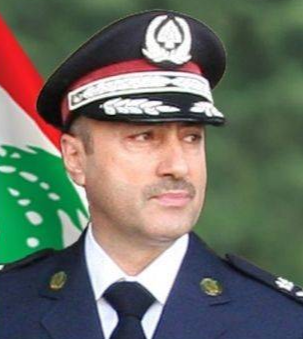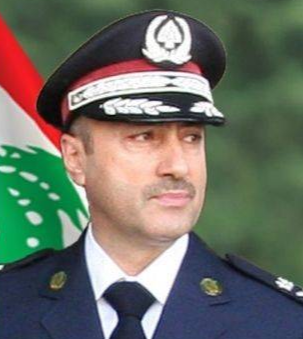
State Security Director-General Tony Saliba. (Credit: NNA)
How does the local scene look eight days from the first anniversary of the devastating Beirut port explosion?
The political class is trying to bypass an investigation that, although not yet closed, seems to be on the verge of pointing out — and therefore assigning responsibility for — the administrative, security and political shortcomings that caused part of the capital to explode and left hundreds of families bereaved.
On July 19, the Higher Defense Council met to decide whether to approve a request from Tarek Bitar, the lead investigator in the Beirut port explosion probe, to question Gen. Tony Saliba, the State Security director-general, who is close to President Michel Aoun.
Bitar had already requested permission from Hassan Diab on July 5. But during a meeting, the caretaker prime minister said he was not qualified to give such permission, informing the judge that the Justice Ministry’s Legislation and Consultations Committee had decided to transfer the issue to the Higher Defense Council.
The desire to allow the council to decide whether to give Bitar permission to interrogate Saliba is part of a larger attempt to prevent officials whom Bitar has summoned from being questioned.
On July 9, caretaker Interior Minister Mohamed Fehmi refused to allow the interrogation of the head of General Security, Gen. Abbas Ibrahim.
Additionally, Parliament has been debating for weeks judicial and parliamentary prerogatives in relation to a request from Bitar that parliamentary immunity be lifted from three sitting MPs and former ministers, Ali Hasan Khalil, Ghazi Zeaiter and Nouhad Machnouk.
Meanwhile, several MPs have presented a petition to initiate parallel proceedings to investigate the Beirut port explosion before the Supreme Court — a court that, to date, has not condemned any official.
‘Subject to’ but not ‘subordinate to’
According to the Legislation and Consultations Committee, the Higher Defense Council, as a “collegial body,” is the authority that must decide whether to allow Saliba’s questioning.
“The Higher Defense Council must meet and decide whether to give permission [to allow Saliba’s interrogation] — a decision that must be carried out by the council’s vice president, Hassan Diab,” the committee’s recommendation document reads.
A public law expert, speaking on condition of anonymity, told L’Orient-Le Jour that this decision is not in line with the law regarding the supervisory authority of the State Security’s general directorate.
The source explained that although the general directorate is “subject” to the Higher Defense Council, it is “subordinate” only to the council’s president and vice president.
The council’s president is the head of state and does not handle its administrative matters, which are entrusted to the vice president, who is the prime minister. Therefore, in this case Saliba is subordinate to Diab.
The source stressed the need to differentiate between “subject to” and “subordinate to.”
“When we say that the director-general of State Security is ‘subject to’ the council as a collegial body, it means that he receives instructions and orders from the council. The director-general is, however, ‘subordinate to’ a specific person, i.e., the council’s vice president, who handles administrative matters,” the legal expert explained.
“It is the Higher [Defense] Council that orders, for example, the director-general of the State Security to carry out raids … or fight against drug trafficking. But it is the vice president who decides on the director-general’s leaves and time off and other administrative measures, including permission for interrogation,” the source added.
“A hierarchical superior is a certain individual and not a collegial body,” the expert stressed, adding that “affiliating a state institution [State Security] to a collegial body [the Higher Defense Council] is unusual and disputed.”
For these reasons, a judicial source who is following the case doubts that the investigative judge will accept the Legislation and Consultations Committee’s recommendation.
According to the public law expert, Diab has 15 days from the date of his notification of the request — July 5 — plus a few extra days due to Eid al-Adha, to respond to Bitar. No reply means that he approved the request automatically; however, Bitar is not yet taking action, the source said.
If the council were to meet today, it would most likely refuse to approve Saliba’s questioning, especially because the latter is close to Aoun, the council’s president and the head of state.
In addition to Diab, the council is also made up of Fehmi, the caretaker interior minister; caretaker Finance Minister Ghazi Wazni; and caretaker Economy Minister Raoul Nehme. Caretaker Defense Minister Zeina Akar also sits on the council in her capacity as acting outgoing foreign minister.
To approve Bitar’s request for interrogation, a majority vote is needed — something that seems far-fetched.
This article was originally published in French in L’Orient-Le Jour. Translation by Sahar Ghoussoub.
